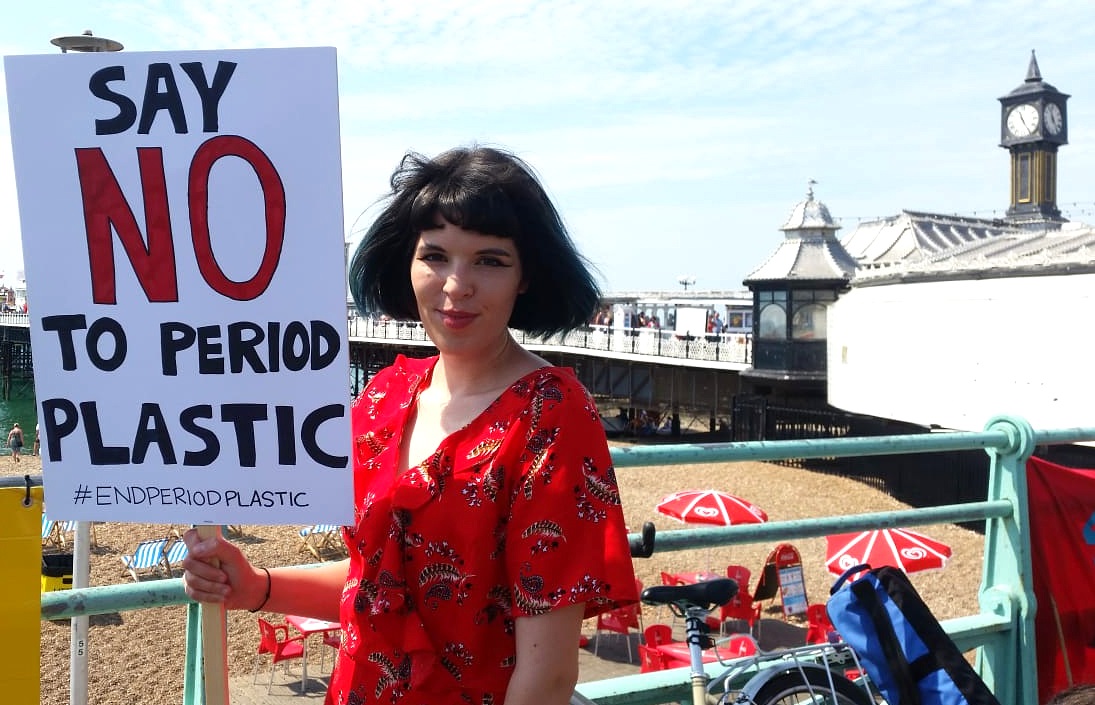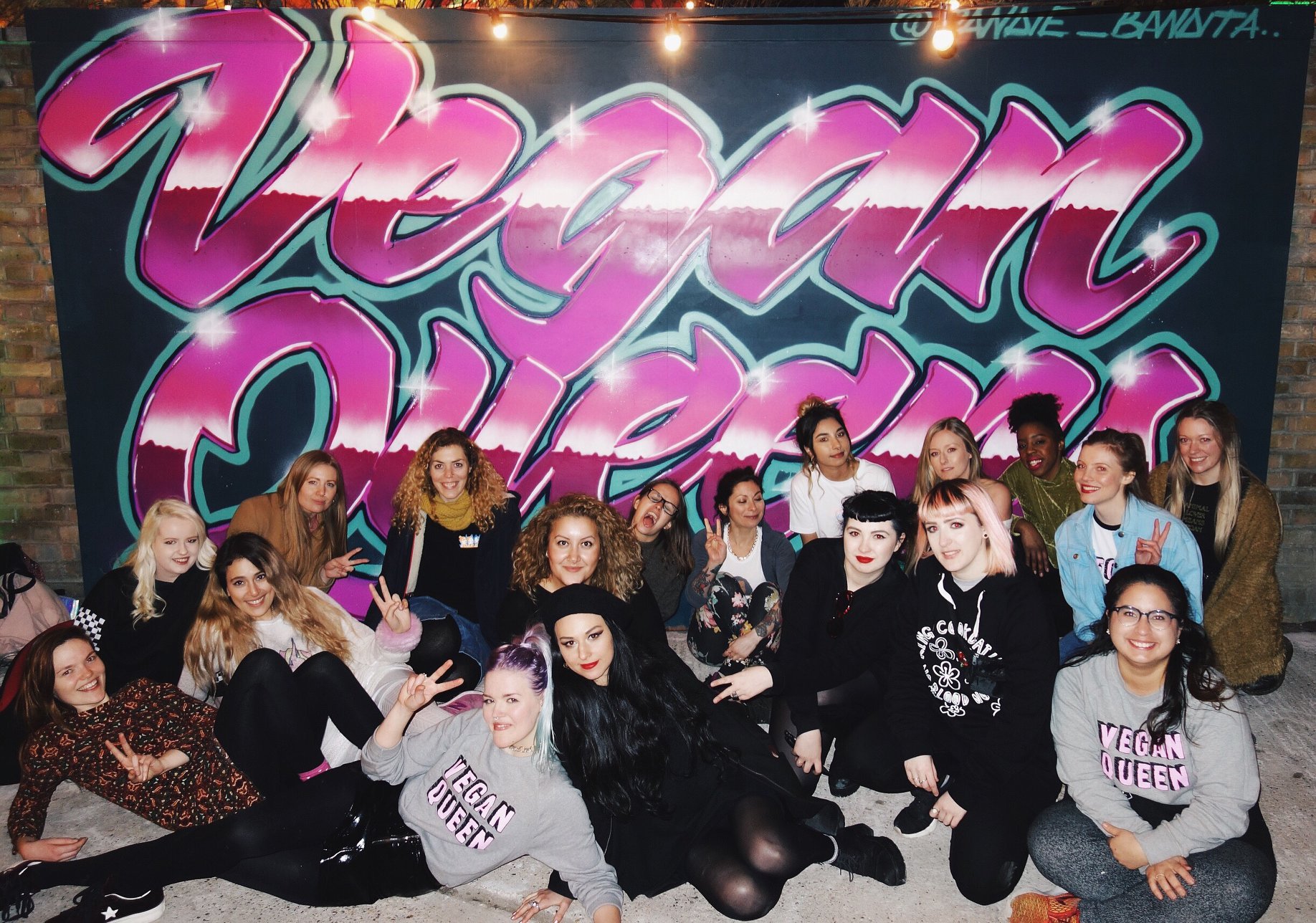2018 was really a year of two halves. Of pros and cons, if you will. On the one hand, we experienced one of the most beautiful, sweltering, sunny summers in recent memory. Lidos and beaches across the country were constantly chocca with happy sunburnt people in shorts and crop tops, and we scarcely went five minutes without a craving a Magnum. On the other hand though, the uncharacteristically beautiful weather we got to enjoy hammered home the inevitability and the danger of climate change and global warming.
Sorry to bring down your memories of a lovely summer, but it’s true. In fact, this year researchers presented us all with the sobering fact that we only have 12 years (11 years as of 2019) to reverse the environmental damage we’re doing to the planet. Or else.
It’s easy to get disheartened and depressed at such a heavy warning, but the death of the planet is not a done deal just yet. In fact there are plenty of ways we can try to undo the bad stuff and make positive changes for the years ahead. i-D asked six activists for a selection of the most positive, achievable improvements we can make in our own lives to support environmental change. Read on and heed their words. For the sake of the Earth!
Bonnie Wright
Actress turned activist Bonnie Wright has dedicated herself to eliminating our over-reliance on single use plastic and plastic packaging. Here, she tells i-D why it’s so important.
I have been trying to reduce my reliance on single-use plastics and packaging overall, as I believe that these seemingly small choices can significantly lower my impact on the home I want to protect. This endeavour has changed the way I look at consumption and led me to be more mindful of the full lifecycle of everything I interact with. Where did it come from, whose labour brought it into my possession and where will it go once I’m done with it?
I’ve noticed that we like to classify something as dirty as soon as we can, so that we can get rid of it and declutter our lives. By giving products this incredibly short life span we are destroying our waters, our air, our earth and in the end, our own health. The rubbish bin is sadly not a Mary Poppins bag of limitless abilities, and what we throw into it has to go somewhere. It is time we take ownership of what we decide to consume and be responsible for what happens to it after we use it. Did we even need it in the first place?
Take one step at a time — buy a reusable water bottle, bring your lunch to work, buy whole fruits and veg rather than pre-package — and don’t get overwhelmed. One will lead to the next and expand your awareness of how much packaging you can easily avoid. We can all do our little bit and these small choices will be seen. Yes, we live in a consumer society but that makes us, as the consumers, the ones with the power. By making single-use packaging uncool, the big corporations will have to use their money and resources to think of more sustainable materials to package goods. We are either creating the pollution or being the solution.

Jamie Margolin
Frustrated with a lack of representation in elected officials, 16-year-old Jamie started This Is Zero Hour , a movement to elevate often ignored youth voices in environmental politics.
Everyone should be taking small steps to change the systems of oppression that are trapping us in this climate crisis. Call your representatives to tell them you care about the climate crisis, and urge your representatives to support green initiatives. Correctly solving climate change means dismantling all the systems of oppression that caused it in the first place. It’s not a matter of choosing between causes — climate justice affects everything. American capitalism views everything as a commodity with the bottom line and profit seen as the only thing that matters. That is the true root of the climate crisis, and that extractive system is what we need to move away from. I envision a world that has addressed the climate crisis head on and made sure that regardless of gender, sexual orientation, race, socioeconomic status, religion, ethnicity or disability, everyone has clean air, clean water, access to good healthy food, and feels safe.
It’s true that major corporations are the main cause of the climate crisis — but that doesn’t make the actions every person takes individually insignificant. The actions you take do matter. If everyone went vegan, if everyone took more actions to reduce their carbon footprint, that would make a huge difference! So do everything you can because it does matter — but also don’t let the huge corrupt corporations, causing the majority of the problems, tell you it’s your fault we’re in this mess.
I am a hopeful activist. You can’t motivate the world with one giant existential crisis, but you can motivate them with a hope of a brighter future. Youth have the moral high ground on this issue. We didn’t create the systems that caused the climate crisis, but we are inheriting the worst of it. We’re inheriting this massive problem.
Moby
Moby has been an advocate for veganism for many years. Here he discusses why, in 2019, reducing our intake of animal products is still as important as ever.
Al Gore has called animal agriculture “the second inconvenient truth”, as it currently covers 45% of all the world’s land. If we all cut back or eliminated animal products from our diets it would help so much in making the planet a better place. All of our global problems — including climate change — are the result of cumulative actions, so the solutions also have to be the result of cumulative actions. Over the next 12 years I’d love to see us halve our reliance on antibiotics, animal agriculture, plastic and petroleum use.
Veganism is a profoundly important issue when it comes to the environment. At the very least, we should be embracing ‘reduceatarianism’. Animal agriculture contributes so much to direct methane emission, rainforest deforestation and the huge carbon footprint of feeding and transporting 100 billion livestock. Think of the great things you like that are already vegan or close to vegan; rice and beans, spaghetti, much of Indian food, hummus, bread, nut butters, green smoothies. Start small and do your best.

Ella Daish
Ella is an environmental activist dedicated to breaking the plastic cycle and reducing the amount of packaging used in menstrual products with her campaign #endperiodplastic.
This year the threat of plastic pollution has gained huge media coverage with its adverse impacts on the environment taking centre stage. Although the issue is widespread, every one of us can participate and directly make a difference. Nowadays we live in a throwaway society, one in which we can buy a product, use it for as little as 15 minutes, discard it and forget without conscience where it may end up. This convenience, which is led by consumer demand, is placing continued strain on the natural world and all the creatures that call it home, which is why our individual actions and choices definitely matter. The impact that companies are having on the environment is huge but they will not manufacture products that are not selling, which is why we really can make a significant difference because they will have to respond to our shifting consumer and spending habits.
Menstrual products are an essential, but the plastic content of them is not. There are multiple environmental effects associated with these products including entering the oceans and waterways, and subsequently littering beaches when flushed. Because of their plastic content they break down into micro-plastics and fibres overtime that in turn are ingested by marine life. They also contribute to over 200,000 tonnes of landfill waste in the UK every year and if they are not put into landfill then they will be incinerated. We can reduce our reliance and make a positive difference by choosing eco-friendly alternatives such as plastic-free tampons, pads and reusables like menstrual cups and washable pads. It’s so important that we spread the word and raise much needed awareness about this issue because there are still so many individuals unaware of this hidden plastic. We need to start conversations with those around us and encourage others to go green on their flow.

Laura Callan
Laura founded and runs Bright Zine , a quarterly ethical lifestyle magazine with a focus on ethical culture and community, conversation sparking op-eds and a celebration of art and creativity.
The first and most important step is to educate ourselves. Once we discover what’s really happening to our world, we become inspired to change, we find our ‘why’. Once we know and we care, we can then be more mindful in all our choices as we move forward. In terms of the environment and the future of the planet, the best and most impactful small step anyone can take is to start reducing and eliminating animal products from their diet. We are wasting so many of the planet’s resources on feeding animals that will then be killed for food, and frankly we just don’t have the resources or the land to waste.
People need to value themselves and realise their power more. We’re made to think that we’re just tiny specs or cogs in a machine when actually we are the 98%. If you think about it, I went vegan, some other people went vegan, and then some more people went vegan, so many that now we can get vegan food in high street eateries, supermarkets, fine dining restaurants, almost everywhere. Vegan signs are now in the windows of most places on the high street, and what a huge change that is from 10 years ago. And that’s all because of the beliefs, actions and buying behaviours of multiple individuals. At the same time though, we do need to pay attention to these huge global corporations and use our voices to put pressure on them to make changes too. They will listen to our buying behaviours, but with the terrifying and ever-increasing threat to our environment we need to do more than just change our consumption habits.
Youth voices are so important because young people are the ones that are going to have to clean up this mess. I’m hopeful for our generation and those coming up — they’re paying attention, and that’s inspiring to see.
